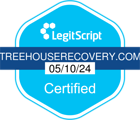There is now a lot of evidence that exercise is not only good for your physical health but for your mental health as well. Research shows that regular exercise improves mood, improves sleep, reduces stress, and relieves symptoms of anxiety and depression. There is also emerging research indicating that exercise may help fight addiction and reduce the risk of relapse. This is why more and more top addiction treatment programs are including exercise as part of their programs. However, exercise can also teach you a lot about yourself and how to overcome challenges including addiction. Here’s how.
Everything is hard at first.
Everyone who has ever decided to get into shape knows that the first couple weeks of a new exercise regimen can be tough. You may have to walk into a gym for the first time, unsure exactly how to act or what to do. You might worry about looking foolish or weak. Once you do get started, you’ll definitely be sore after the first few workouts and you’ll probably feel even tireder than usual until your body adapts. However, if you stick with it, you’ll start to notice positive changes pretty quickly. You feel better, you have more energy, you’re not as sore, and you’ve completely forgotten about your initial trepidation. The same is true of every new thing you try, whether it’s starting a new career or getting sober for good.
Discomfort is temporary.
While most people decide to get fit so they look better, feel better, or get healthier, much of the benefit of exercise is learning to tolerate discomfort in pursuit of your goals. In fact, studies show that regular exercise actually rewires your brain to feel less pain. When you exercise, whether you’re out for a run or doing a set of heavy squats, there’s always a low point where you don’t feel like you can go on. Eventually, you learn that this discomfort is temporary and that if you do just a little more, you’ll feel good that you saw it through.
You’re capable of more than you think.
If you’re new to exercise, you will be quickly confronted with the giant gap between what you can do and what’s possible. Your trainer might tell you you’ll be squatting twice your body weight in a year and that might sound impossible but, with consistent effort and smart programming, you’ll be amazed how quickly you can progress. The same is true of any big goal. Consistent effort gets you a lot farther than you think.
Focus on progress.
Finally, when you want to get into shape, you quickly learn that you can’t compare yourself to other people. No matter how good of shape you’re in, some beast in the gym will be warming up with your max. If you compare yourself to others, you’ll only get discouraged and quit. Fortunately, whether you’re lifting, running, swimming, biking, or doing any number of activities, it’s easy to measure your progress against yourself. You can see over the course of weeks and months that you’re getting faster, stronger, or more skillful. Learning to measure your progress against yourself instead of others is one key to feeling better about yourself and staying motivated.
Tree House Recovery of Orange County, California is a premiere men’s addiction treatment facility that uses eight different modalities to help our men become the best versions of themselves they can be. We teach our men that every day of their journey is something to celebrate and that recovery isn’t a sprint– it’s a marathon.
To get started with Tree House Recovery, call us today at (855) 202-2138






